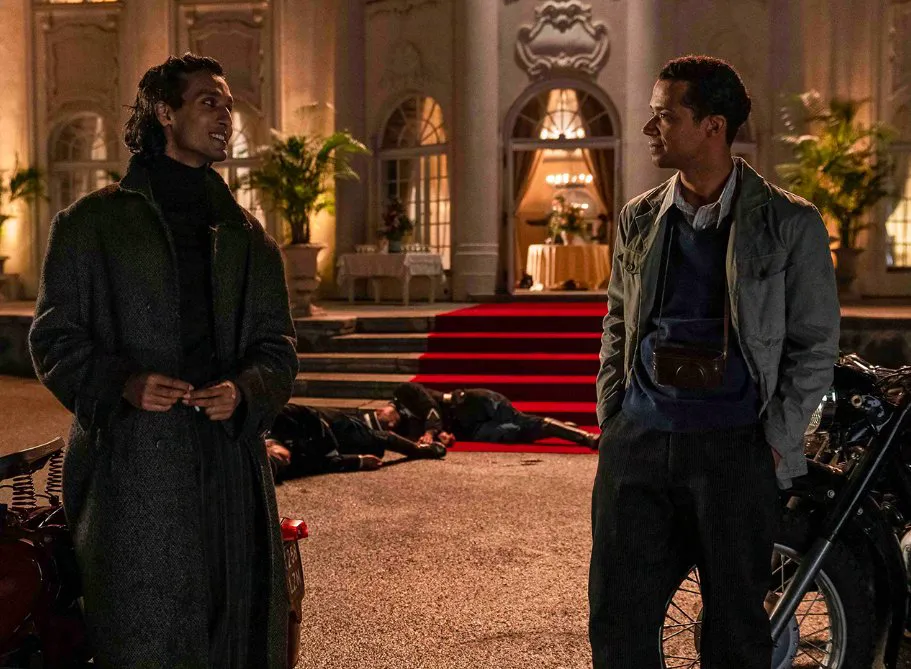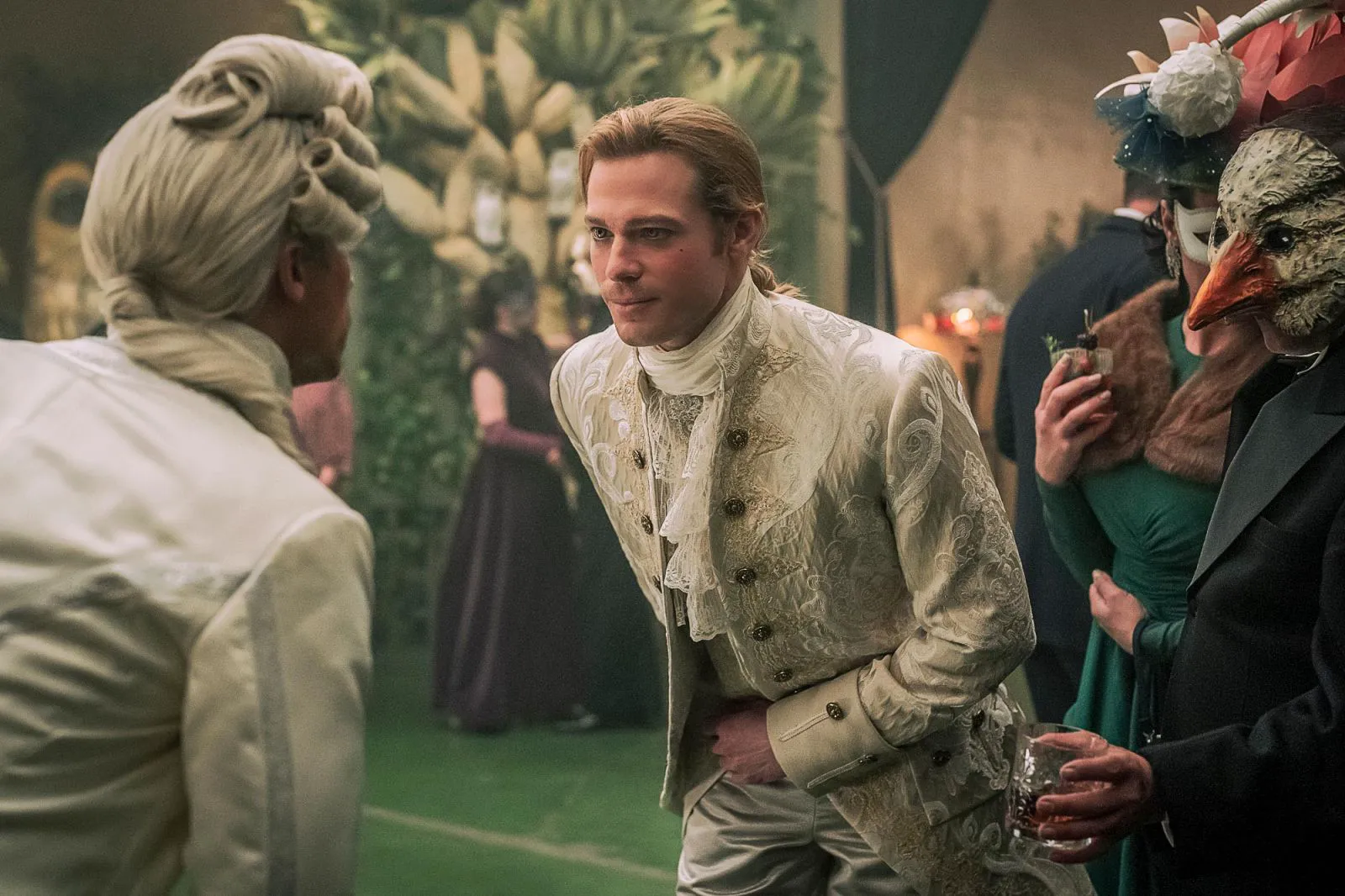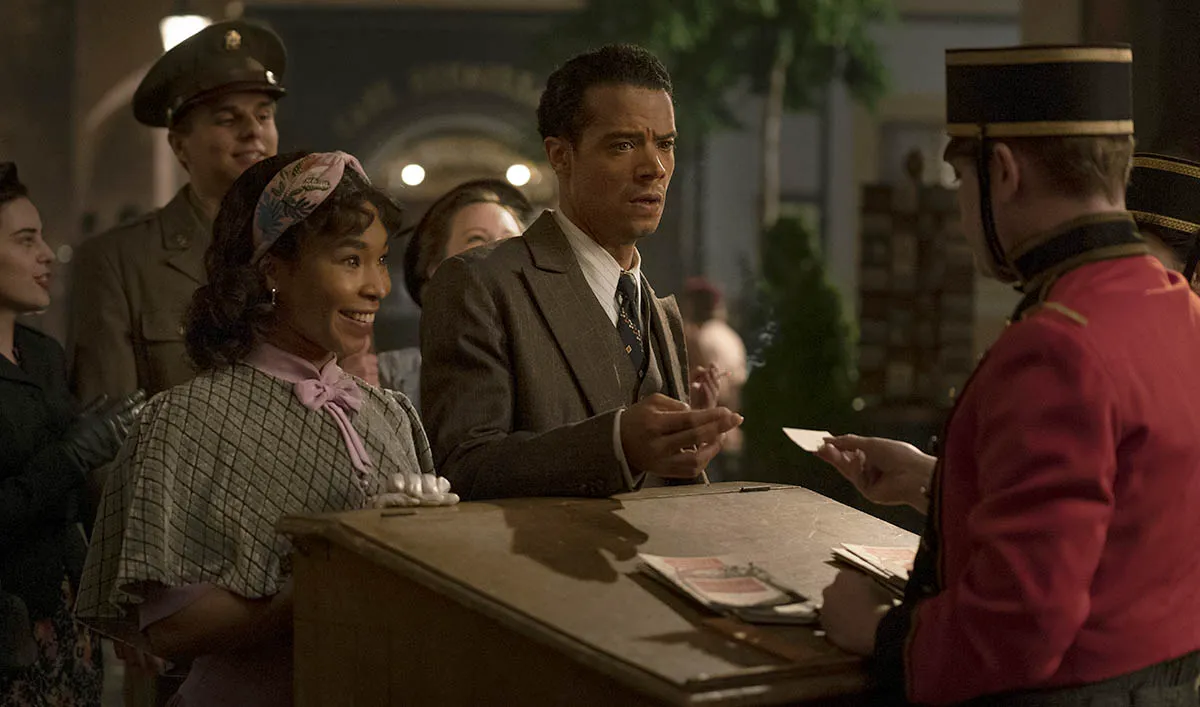In the autumn of 2022, AMC, the network renowned for series like “Breaking Bad” and “The Walking Dead,” premiered a new adaptation of Anne Rice’s timeless novel, “Interview with the Vampire.” This marked the second attempt to bring Rice’s “Vampire Chronicles” to the screen, following Neil Jordan’s iconic 1994 film starring Tom Cruise, Brad Pitt, and Kirsten Dunst. Rolin Jones (“Perry Mason”) took on the role of showrunner for this new series, which received personal approval from Rice herself before her passing.

Jacob Anderson as Louis in “Interview with the Vampire”
Season 2: A New Direction
The second season of “Interview with the Vampire” faced significant changes early on. Bailey Bass, who played Claudia, was replaced by Delainey Hayles (“Too Close”). Additionally, the storyline involving Lestat (Sam Reid) was minimized, relegating him to a haunting memory. The central plot now focuses on the relationship between Louis (Jacob Anderson) and Claudia as they embark on a journey through Eastern Europe, experience World War II, and eventually settle in Paris, where they join the theater of the ancient vampire Armand (Assad Zaman).

Sam Reid as Lestat in “Interview with the Vampire”
Themes of Memory and Trauma
Like the first season, Jones continues to blend fantasy and reality, philosophical monologues and graphic violence, past and present, and now, Lestat and Armand. As both vampires and Americans, Louis and Claudia observe the war from a distance, grappling with guilt towards a devastated Europe. Their search for ancient beings leads them to Romania, recently liberated by the Red Army.
The season explores the theme of memory, both collective and personal. Collective memory shapes society, history, and culture, while personal memory influences individual growth. As Europeans grapple with the trauma of geopolitical violence, Louis confronts the emotional abuse he has endured. In both cases, memory is portrayed as a monster hindering progress, a dark past that cannot be escaped.
A Shift in Dynamics
The initial episodes of the second season resemble a descent into depression. The hopelessness of the world mirrors Louis’s inner turmoil as he grapples with guilt over Lestat’s murder. Sam Reid’s character haunts him like a persistent ghost, refusing to let go. However, the introduction of the Parisian vampires brings a change of pace.

Jacob Anderson as Louis in “Interview with the Vampire”
Armand vs. Lestat
In the second season, Armand is presented as a contrast to Lestat, with Assad Zaman taking on the role opposite Sam Reid. Zaman’s portrayal of Armand is a subtle and accurate representation of the character, more faithful to the book’s description than Antonio Banderas’s version in the 1994 film. While Banderas balanced Tom Cruise effectively, Zaman’s performance lacks the same impact. However, Armand’s vulnerability complements Louis’s melancholic nature. They share a common identity as immigrants in a predominantly white Europe.
Despite Zaman’s performance and the inclusion of Armand’s backstory with Lestat, the early episodes of the second season feel slow-paced. This pause may have been necessary for Louis to recover from his abuser, but it results in stagnation that affects the show’s quality. The drawn-out timeline may be due to the adaptation nearing the end of the first book. Nevertheless, the magic of “Interview with the Vampire” remains, making it a worthwhile watch.